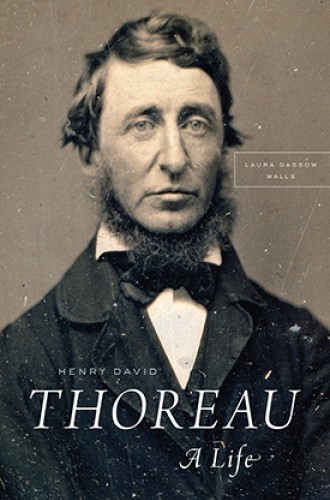The vocation of Henry David Thoreau
Thoreau's beautiful writing, biographer Laura Dassow Walls shows, is scripture waiting to be heard.
Henry David Thoreau is often celebrated as the man who turned his back on society, returning to nature to become a citizen of the wilderness. Thoreau, in this view, becomes a hermit who shuns his neighbors in Concord, Massachusetts, greeting woodchucks, mice, and turkeys as his new neighbors. But Laura Dassow Walls, who teaches English at Notre Dame, points out that Thoreau was hardly a recluse: he met his neighbors every day on his walks. With colorful and rich details of Thoreau’s childhood, youth, and adulthood, Walls draws a stunningly vivid portrait of Thoreau as a man who, even as a child, believed that to be a writer was his highest calling.
In 1837, the young Thoreau records an incident in his journal. He recalls playing Indians with his brother, John, and unearthing an arrowhead. As he rubs the arrowhead, he feels as if he were holding a live object handed to him by a Native American elder. The barriers between past and present, living and dead break down in that moment. Once Thoreau commits this memory to his journal, he makes the incident true, observes Walls. In this act, he “takes up the writer’s double consciousness . . . opening up a double vision: past and present, white and Indian, civil and wild, man and nature.”
At Harvard, Thoreau embarks on his vocation of writing by keeping a commonplace book, copying extracts from his reading. After his graduation, Thoreau celebrates his birth as a writer. His friend Ralph Waldo Emerson calls on Thoreau to “see how the inexhaustible waters of life roll through the catch of every moment.” Thoreau responds by inaugurating what Walls calls “a monumental life’s work, an epic journey of over two million words, sustained as long as he could hold a pen.”






